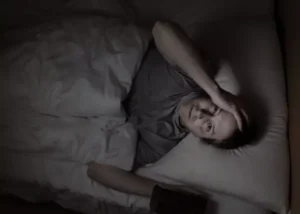This work in turn set the stage for subsequent investigators who developed social, affective, and cognitive models of alcohol use. Much is also unknown about the social drinking pathway to alcohol problems. Notably, the vast majority of prior laboratory alcohol administration studies have asked young adults to consume alcohol while alone (Fairbairn & Sayette, 2014).
The Fine Line Between Social Drinking and Alcoholism
Avenues Recovery is a community-based drug and alcohol rehabilitation center with locations across the United States. If you’ve answered yes to at least three of the above questions, there is a good chance that you have a drinking problem. Marixie Ann Manarang-Obsioma is a licensed Medical social drinking and drinking problem Technologist (Medical Laboratory Science) and an undergraduate of Doctor of Medicine (MD). If you’re ready to get started, reach out to Recovery Delivered today to learn more. AddictionResource aims to present the most accurate, trustworthy, and up-to-date medical content to our readers.
How many drinks a week is considered occasional drinking or casual drinking?

This particular finding suggests that where immigrants live is another social context worth further investigation. Racial and ethnic minorities, especially those living in African-American communities, are likewise exposed to targeted alcohol beverage advertisements (Wilson and Till 2012). African Americans account for 13 percent of the U.S. population, but they purchase 67 percent of all malt liquor sold (Miller Brewing Company 2000). Malt liquor generally has higher alcohol content, is less expensive, and is sold in larger volumes than other beers and ales, and African Americans are exposed to more malt liquor advertisements than other groups.
The Irrationality of Alcoholics Anonymous
Although it is well established that alcohol can cause cancer, this fact is still not widely known to the public in most countries. If you’re concerned that you or a loved one’s social drinking has crossed the line into alcohol abuse and alcohol addiction, give us a call. Professional treatment at a recovery center can help you take back your life and stop alcohol abuse from getting worse. Do you sometimes find yourself nodding absentmindedly when people talk about things that happened while you were drinking? Do you find periods of time are missing from the previous day’s heavy drinking or binge-drinking episode?

Therefore, it is crucial to identify warning signs that can tell us if social drinking is transitioning into an alcohol-related problem. Finally, understanding the benefits of social drinking and its risks may help emphasize the need for responsible social drinking. Social drinking is nowadays considered normal and harmless; this is often reinforced by how the media portrays alcohol.
As noted by Wilson (1982) and Sher (1987), a major objective of TRT research has been to investigate both the underlying mechanisms mediating alcohol’s effects on emotion and the conditions under which alcohol is reinforcing, including understanding in whom the effects are most pronounced. Several mediators have been proposed to explain alcohol’s effects on emotion, including some that stem directly from the various models discussed earlier when addressing TRT (see Sayette et al., 2016 for elaboration). Regarding the group formation project more specifically, our data suggested diminished emotional inertia may underlie the capacity of alcohol to improve affective states (Fairbairn & Sayette, 2013).
Some people require the space away from triggers like parties and events and the intensive treatment experience that inpatient rehab provides. Others can begin their addiction recoveries with day treatment in outpatient rehab. Professional treatment provides behavioral therapy and addiction counseling in individual and group therapy formats. You’ll meet others who understand what you’re going through, and your treatment team will help you build skills to prevent relapse. You begin to look at alcohol as a reward for accomplishing a project, achieving a goal, or just getting through the day. When alcohol is the reward driving your behaviors, it is time to examine how much of a role alcohol has in your life.
- These age-related trends in social drinking are not only influenced by biological factors.
- Alcohol causes at least seven types of cancer, including the most common cancer types, such as bowel cancer and female breast cancer.
- Part of this confusion is that many individuals are unclear about the differences between social drinkers, problem drinkers, and alcoholics.
- Now three years sober, Milbourne wants you to know that anyone can have an alcohol use disorder.
- Studies have also shown that the introduction and spread of alcohol in various societies have led to distinct cultural attitudes towards drinking.
- If you beat yourself up over your choices and actions when under the influence of alcohol, it may be time to look at the role alcohol plays in your life.
- As societies evolved, so did the cultural significance and regulation of alcohol.
- USA TODAY recreated the EPA’s analysis and found public systems in Fort Worth, Texas; Fresno, California; Pensacola, Florida; and Augusta, Georgia, were among the hundreds whose sample averages landed above the new annual limits.
- Though at first glance participants consuming placebo beverages in our group formation project do not appear to respond in an obviously distinct way when compared to those in our prior studies who consumed placebos while alone, we continue to evaluate this possibility.
- Your health care provider or mental health provider will ask additional questions based on your responses, symptoms and needs.